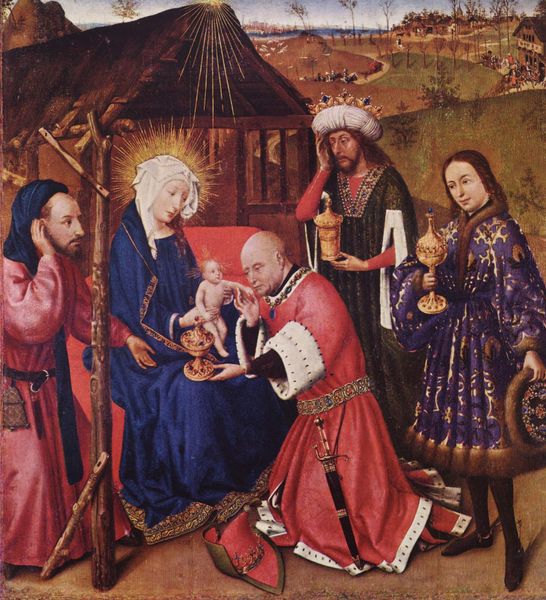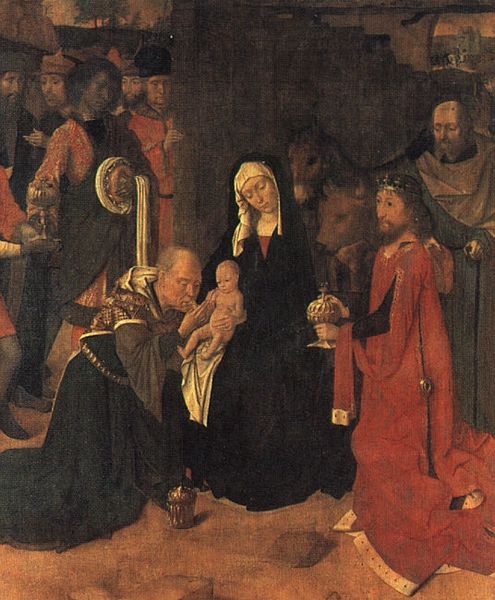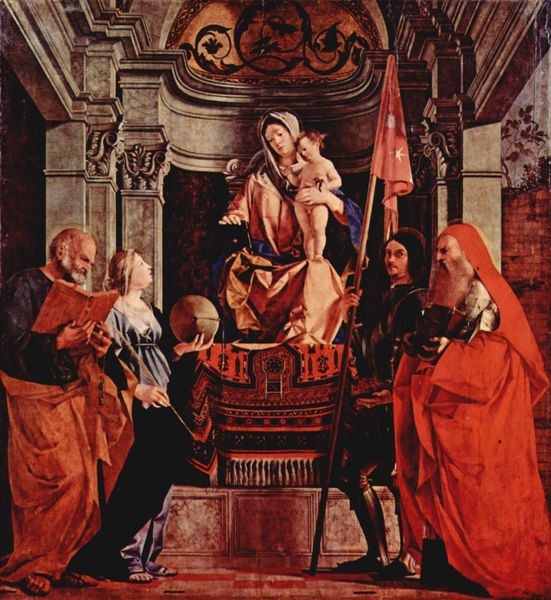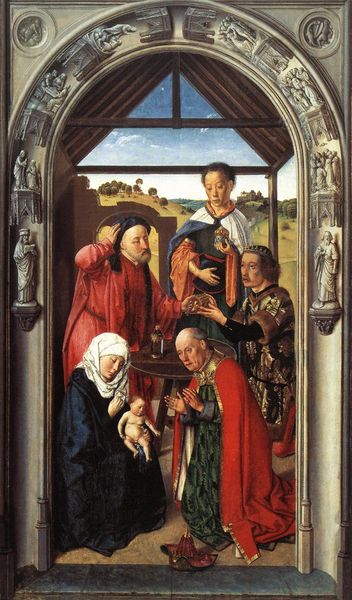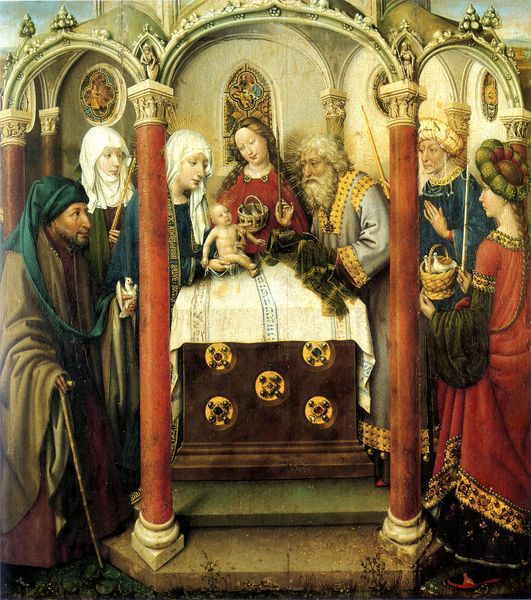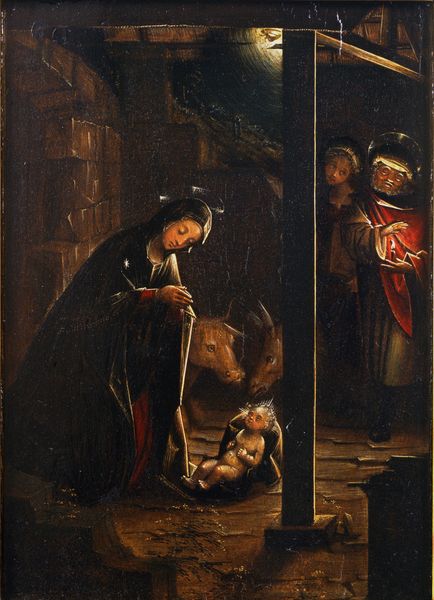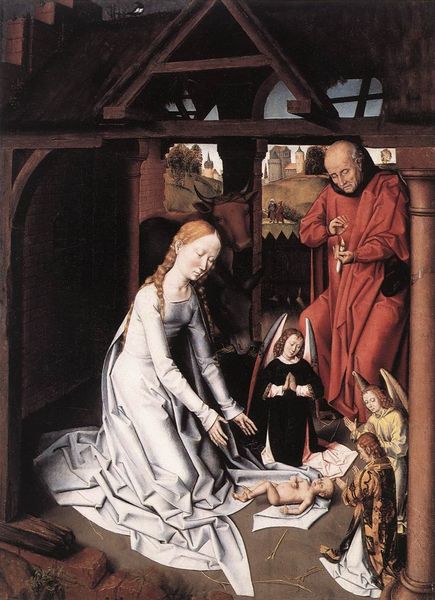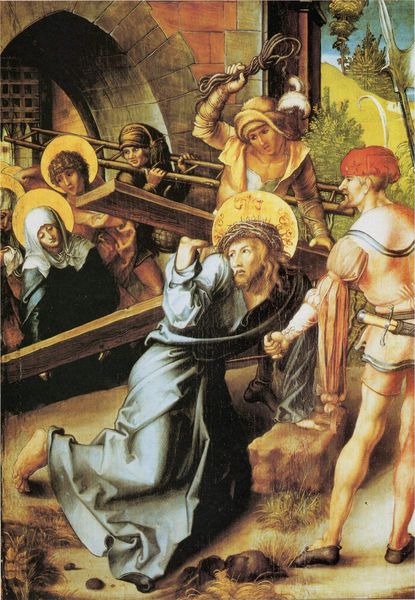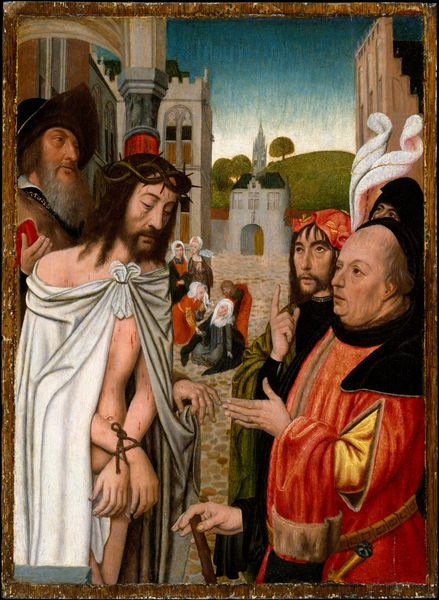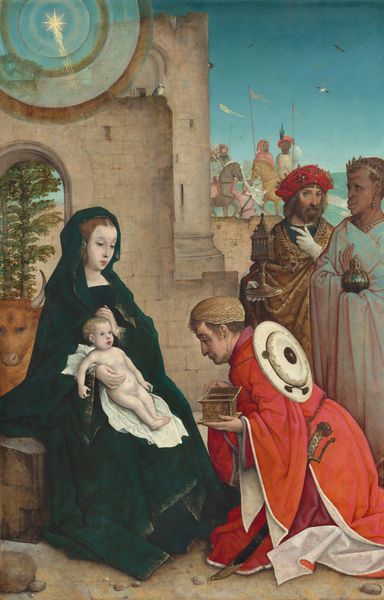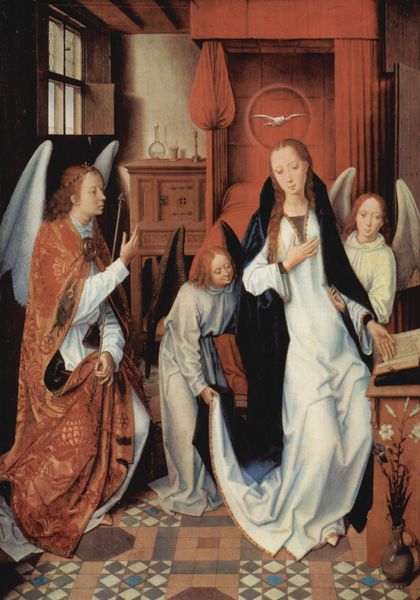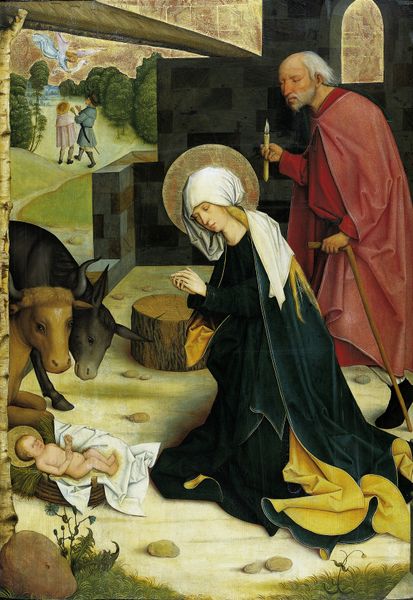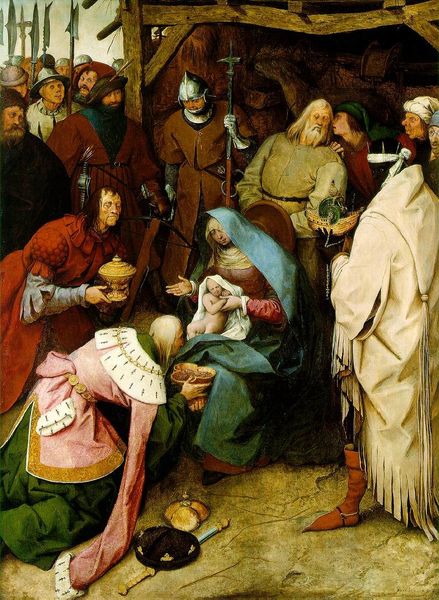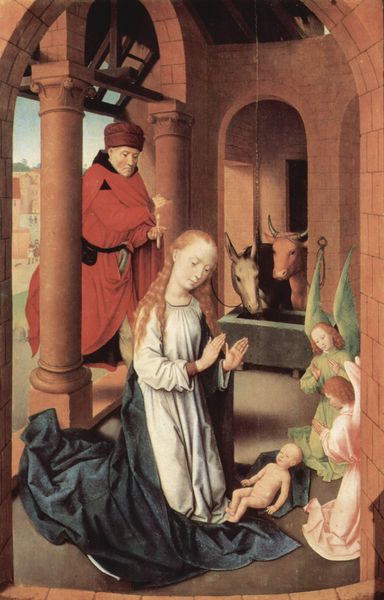
painting, oil-paint
#
painting
#
oil-paint
#
figuration
#
oil painting
#
history-painting
#
northern-renaissance
Copyright: Public domain
Jan Joest painted this Adoration of the Magi panel sometime around 1505-1508, likely in the Lower Rhine region, present-day Germany, using oil on wood. The painting illustrates a scene of hierarchical social order, as three wealthy men of different ages pay homage to the divine baby. The scene is set in a dilapidated building, juxtaposing the material wealth of the Magi with the humble circumstances of Jesus' birth. The cultural references such as clothing and objects, reflect the economic structures and the importance of gift-giving rituals in 16th century European society. The institutional context in which this artwork was created and displayed played a crucial role in shaping its meaning. Religious institutions like the Catholic Church were primary patrons, and their doctrines heavily influenced the content and style of art. To understand this painting more fully, one would need to consult historical documents such as religious texts, economic records, and art treatises. By examining the social and institutional context, we can interpret it and the ways in which art reflects and shapes society.
Comments
No comments
Be the first to comment and join the conversation on the ultimate creative platform.
